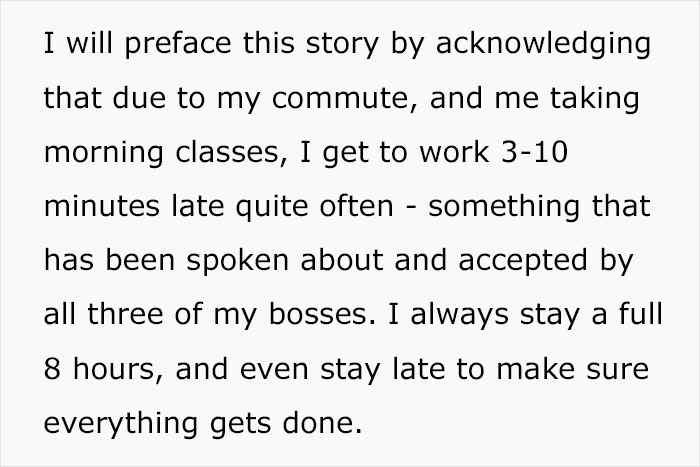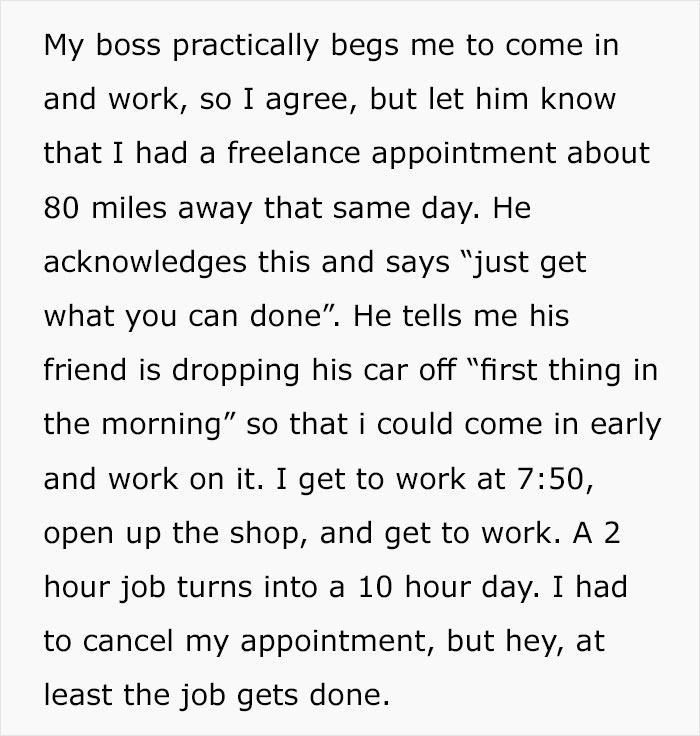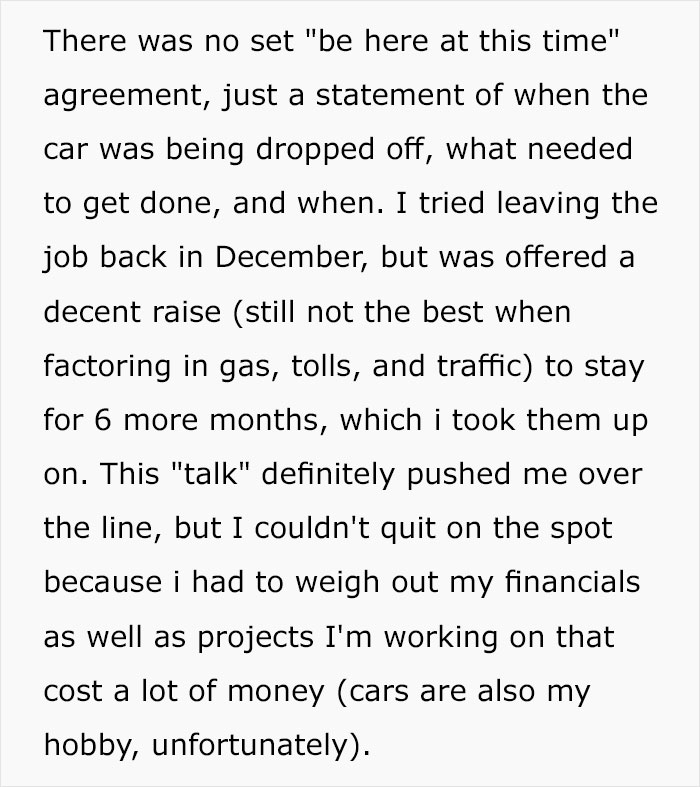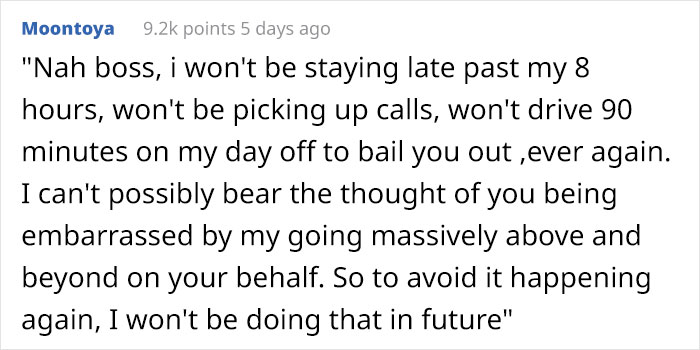If you’ve ever looked at job postings, you’ve probably seen the word “family” pop up at least once or twice. Despite the obviously good intentions, comparing workplace relationships to familial ones can do more harm than good. And user issathrowaway2 knows it from personal experience.
Recently, they shared a troubling story with members of the Anti Work community about how their boss berated them for “embarrassing” him in front of one of his “good customers”. You see, the author of this post valued their job and wanted to prove themselves, “even if it meant over exceeding”. So when the small business owner begged them to come in on their day off, they agreed right away.
Unfortunately, instead of appreciating their employee’s efforts, the boss was disappointed and accused them of being unreliable. As you can guess, that didn’t go well with the author. Read on for the whole story.
Recently, this employee shared a story about how their boss felt “embarrassed” after they came in late on their day off

Image credits: Deniz Demirci (not the actual photo)







Image credits: issathrowaway2

Image credits: issathrowaway2
Since one-third of our life is spent at work, it’s necessary that people feel supported, heard, and valued by their colleagues and employers. Knowing that others appreciate you can have positive outcomes both in your career and your wellbeing. However, according to leadership development trainer Joshua A. Luna, one of the biggest mistakes leaders make is comparing their business to a familial bond.
“While some aspects of a ‘family’ culture, like respect, empathy, caring, a sense of belonging can add value, ultimately trying to sell your organization’s culture as family-like can be more harmful than psychologically satisfying,” he explained. When “family” means different things to different people, this mentality still blurs the line between personal and professional.
Employees may begin seeing each other more like siblings and not coworkers, so they “emotionally attach themselves to the organization.” Sure, it may reduce conflicts and disagreements, but their “fear of causing a strain in the relationship with their superiors (who are now seen as fathers or mothers) could leave employees feeling like they must share any information that is being asked of them.”
Later on, the author added some more updates about this situation

Image credits: issathrowaway2





Image credits: issathrowaway2
“Family” culture can also create an exaggerated sense of loyalty. Issathrowaway2’s story is a perfect example of how an employee is willing to work longer and show up on their day off just because their boss asked them to. Luna explained that employers are more likely to exploit overly loyal people.
“When employees work under this mentality, it’s only a matter of time until performance and productivity drop due to burnout, leading to conversations with managers or HR about what they did wrong,” he wrote. “This creates a perception for employees to believe they’re not doing their part. Left unaddressed, employers could foster an environment where burnout is the norm and ultimately impacts the bottom line through employee attrition and lost productivity.”
If a workplace promotes “family” culture, problems arise when the management needs to let someone go or has to share constructive criticism with their employees. After all, the worker may see it as a personal attack against them and their efforts.
While it may be tempting to see your workplace as a second family, remember that relationships between workers and their bosses should be professional in nature. So what should employers do instead? Well, the leadership development trainer suggested avoiding promoting the “family” mentality and thinking of your organization as a sports team or a tribe instead.
That way they’re able to create a healthy and supportive environment, as well as a productive culture based on respect. Bosses and business owners can achieve this by focusing on the purpose: “Let your employees know what is expected of them to succeed at work and that there is a clear line between work and their personal lives. Define these work expectations during an employees’ onboarding period and follow-up through check-ins and 1:1’s.”
Also, accept that the relationship you have with your worker is probably temporary. “If an employee has decided to leave, don’t take offense about them not wanting to work at your company any longer. Acknowledge their contribution and help them exit respectfully,” Luna suggested.
Here’s how Redditors reacted to this whole incident










 Follow Us
Follow Us





